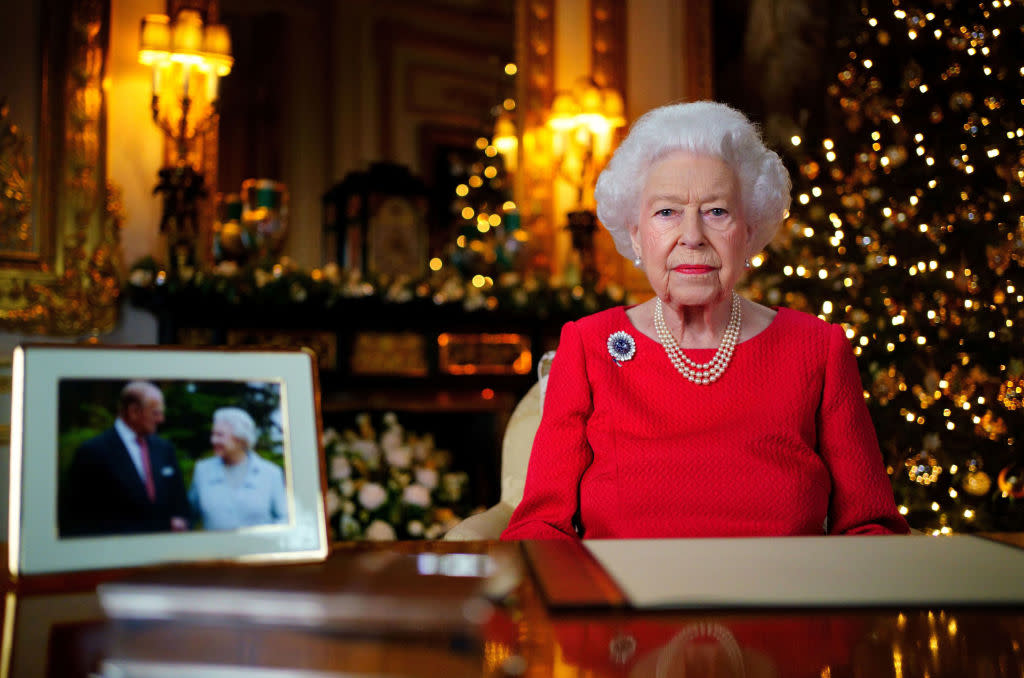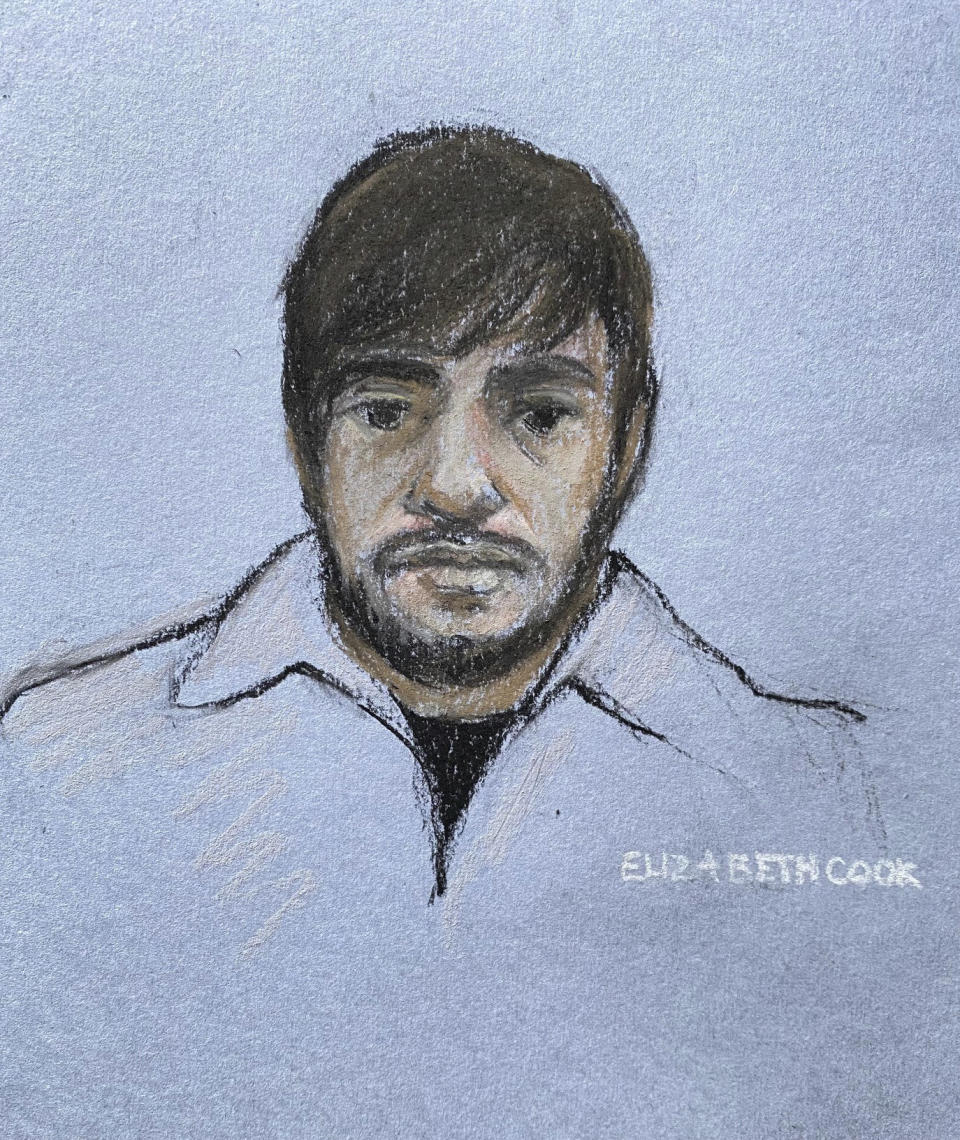Why a British Man Attempted to Assassinate Queen Elizabeth on Christmas Day 2021

Queen Elizabeth II records her annual Christmas broadcast in the White Drawing Room in Windsor Castle, Berkshire. Issue date: Saturday December 25, 2021. Credit - Victoria Jones–PA Images/Getty Images
British national Jaswant Singh Chail pleaded guilty on Friday to treason for his 2021 attempt to assassinate the late Queen Elizabeth II. Chail was caught on the grounds of Windsor Castle on Christmas Day armed with a crossbow. He told authorities that he was there to kill the Queen and said that it was revenge for the 1919 Jallianwala Bagh massacre in British India in a Snapchat video he posted just before entering the castle.
“I’m sorry, I’m sorry for what I‘ve done and what I will do. I will attempt to assassinate Elizabeth, queen of the royal family.” Chail said.
The Hampshire, England resident will appear in court on March 31 as the first person in the U.K. to be convicted of treason in more than 40 years. He pleaded guilty to possession of a deadly weapon and threats to murder the Queen. Chail is currently at a high-security psychiatric hospital receiving treatment.
What happened?

One the day of the break-in, Chail scaled the castle with a rope ladder and wandered the grounds for about two hours before a royal officer found him near the Queen’s quarters. At about 8:10 AM, the officer pulled a taser on Chail and asked, “Morning, can I help, mate?” Chail responded, “I am here to kill the Queen.”
The officer ordered Chail to drop his weapon, which was later discovered to be a loaded crossbow. The officer also demanded that Chail get on his hands and knees, to which the intruder complied.
Chail was carrying a note that said, “Please don’t remove my clothes, shoes and gloves, masks etc, don’t want post-mortem, don’t want embalming, thank you and I‘m sorry.” Chail reportedly applied to join the Ministry of Defence Police to get closer to the royals, before this attempt.
Suspect angry over Jallianwala Bagh massacre
“This is revenge for those who have died in the 1919 Jallianwala Bagh massacre,” Chail said on Snapchat. “It is also revenge for those who have been killed, humiliated and discriminated on because of their race.”
The Jallianwala Bagh massacre took place on April 13, 1919, when British troops opened fire on 10,000 unarmed protesters in the Indian city of Amritsar, killing an estimated 379 people and injuring 1,200. At the time, civil unrest and discontent were growing throughout India, particularly in Punjab, as British authorities refused to roll back repressive wartime policies that limited India’s political autonomy.
In Amritsar, news spread on April 10, 1919 that several prominent Indian leaders had been arrested, sparking violent protests that clashed with armed soldiers. British officials enacted a ban on public gatherings, like the group of thousands gathered at the Jallianwala Bagh garden in the afternoon of April 13, some there to protest and others there to celebrate the Sikh spring festival of Baisakhi.
The garden was enclosed by high walls and only had one exit, sealing people in as the troops reportedly fired hundreds of rounds of ammunition. The massacre went on to define modern Indian history, spurring greater support for Indian nationalism and independence from Britain.
Few treason convictions
Under the U.K.’s Treason Act of 1842, it’s illegal to commit assault or attempt it, to threaten the Queen with a weapon and to endanger peace. Chail faces up to seven years of imprisonment under the act. The last time anyone was convicted of treason was in 1981 when Marcus Sarjeant was imprisoned for five years for firing blank shots at the Queen during a parade in London.
The older Treason Act of 1351 was more extreme in the sense that all assaults against a monarch were punishable by death. The last time someone was convicted under the more serious 1351 act was in 1946 when William Joyce was hanged for broadcasting Nazi propaganda.

